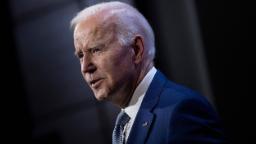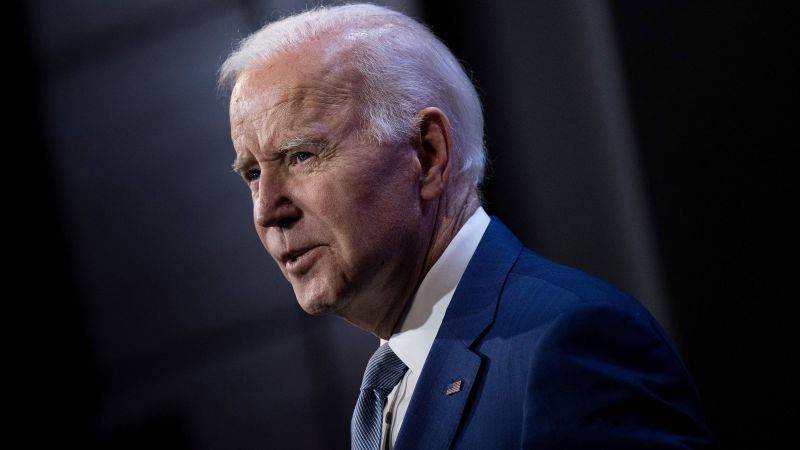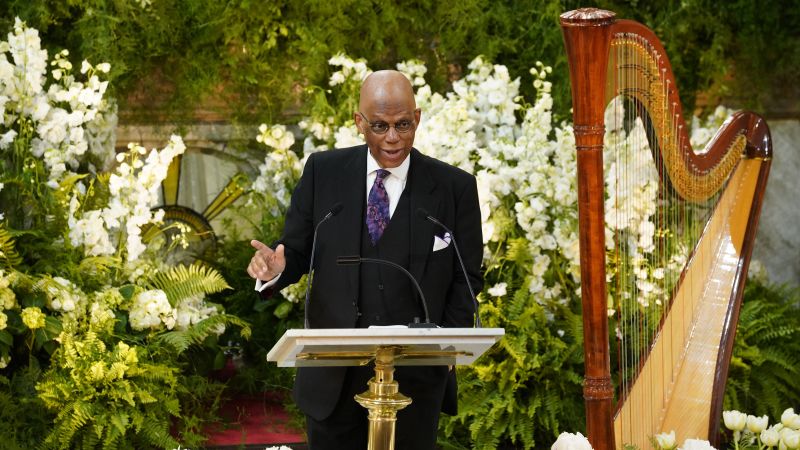Biden to announce $2.8 billion in grants for US battery supply chains


CNN
—
President Joe Biden and Energy Secretary Jennifer Granholm are announcing two actions Wednesday aimed at lowering costs amid inflation by targeting domestic battery supply chains – new efforts the administration is rolling out 20 days before the midterm elections.
Wednesday’s announcement from Biden in Washington also comes amid a streak of significant actions by the administration – including those on marijuana and student loans – in the weeks leading up to the November elections. Many of the states getting the newly allocated funding have tight races at the federal and state levels in the coming weeks.
Biden, whose approval ratings continue to hover in the mid-40s, has largely eschewed a pre-midterm travel schedule filled with political rallies, instead opting for less frequent trips to key states where he has delivered speeches on official policy announcements and attended closed-door fundraisers. And while it remains to be seen how the White House will deploy broader messaging on Wednesday’s moves, the President has been citing funding from the infrastructure bill in his campaign pitch. He’s set to travel this week to Pennsylvania for an official event on infrastructure before attending a fundraiser for John Fetterman, the Democratic Senate nominee.
The battery investments, which come from the bipartisan infrastructure law passed last year, will include components affecting both the electric grid and electric vehicles.
The Department of Energy will award $2.8 billion in grants from the law to 20 manufacturing and processing companies for projects across 12 states, a senior administration official said.
And the White House is also announcing the formation of the American Battery Materials Initiative, which the official called “a new effort to mobilize the entire government and securing a reliable and sustainable supply of critical minerals used for power, electricity and electric vehicles.”
“Together, these actions will improve America’s energy independence, strengthen national security, support good-paying jobs across battery supply chains, and lower costs for working families,” a White House fact sheet says.
The funding will go to 12 states, an administration official said, describing the move as “a truly coast-to-coast announcement.” It will be spent in Alabama, Georgia, Kentucky, Louisiana, Missouri, Nevada, New York, North Carolina, North Dakota, Ohio, Tennessee and Washington. It is expected to create 8,000 jobs, officials said. The projects are expected to “develop enough lithium to supply over 2 million electric vehicles annually and establish significant domestic production of graphite and nickel,” according to the fact sheet.
Wednesday’s investment marks “the first of several rounds of investment in the battery supply chain,” a second senior administration official said.
The private sector, which will be represented at Wednesday afternoon’s event, is expected to match the federal government’s investment.
“The recipients of federal grants to invest and build out the domestic supply chain are required to at least match the federal funding with private sector capital. They’ve more than done that in this case. So the $2.8 billion is being leveraged for a total of a $9 billion investment today,” the second official said.
A third senior official pressed that the funding will move US away from dependence China for these minerals, suggesting the effort builds more broadly on building supply chains resilient from autocracies.
“Over the last decades, China has cornered the supply chain for batteries from critical mineral mining and processing to cathode anode belt manufacturing for critical minerals. For the critical minerals lithium, cobalt, graphite, nickel and manganese that are crucial to advanced batteries, China controls nearly all global processing capacity,” the official said.
The official continued, “As the world transitions from a fossil fuel to a clean energy-powered economy, we cannot trade dependence on oil from autocrats like Putin to dependence on critical minerals from China.”
This is a breaking story and will be updated.







